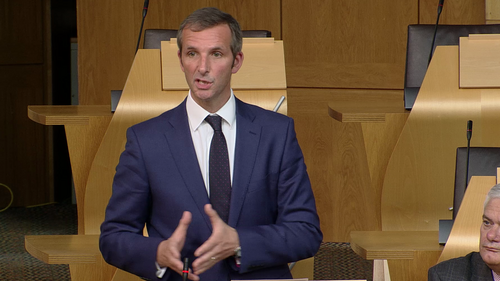McArthur speaks ahead of Regulation of Legal Services Bill debate

Ahead of the Stage 1 debate on the Regulation of Legal Services Bill in the Scottish Parliament today, Scottish Liberal Democrat justice spokesperson Liam McArthur MSP has urged the government to follow through on their promise and remove unchecked ministerial powers currently included in the legislation.
As presently drafted, the Regulation of Legal Services (Scotland) Bill gives Scottish Ministers sweeping new powers to intervene in the way lawyers work. This includes approving rules on law firms and even regulating lawyers directly.
Scotland’s legal figures have long warned that the reforms threaten the legal sector’s long-held independence. The Equalities, Human Rights and Civil Justice Committee’s Stage 1 report indicates that: “there is no place for Ministerial powers in the Bill and these should be removed.”
The Senators of the College of Justice, which represents judges in the Court of Session and the High Court, told MSPs that: “If the bill is passed in its current form, Scotland will be viewed internationally as a country whose legal system is open to political abuse.”
The Scottish Government was forced to back down in the face of unanimous condemnation, with Siobhian Brown, Minister for Victims and Community Safety, committing to amending the Bill to remove the powers.
Mr McArthur said:
“The Scottish Government rushed to introduce the Legal Services Bill to Parliament without properly engaging with key stakeholders. As a result, important reforms are missing from the bill while proposals to introduce unchecked and unprecedented ministerial powers have appeared out of the blue. Little wonder that lawyers, judges and wider civil society have unanimously condemned such moves.
“Modernising the regulation of the legal profession is certainly needed and Scottish Liberal Democrats will support such reform. However, the Minister must now follow through on her commitment to bring forward amendments at Stage 2 that remove dangerous government overreach and introduce the measures that were missed out of the original bill. A failure to make these fundamental changes will leave Parliament with no option but to ditch the bill at Stage 3.”
